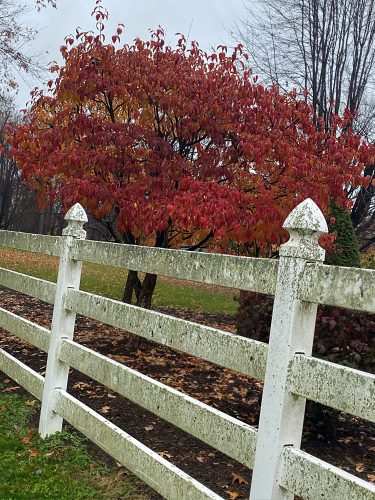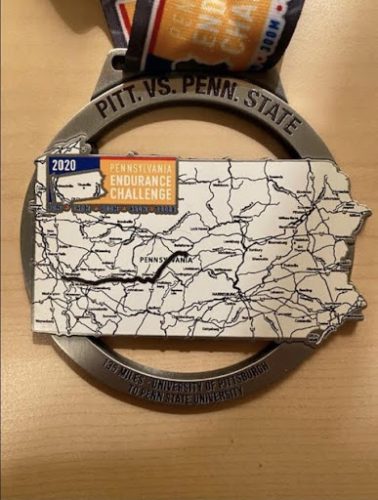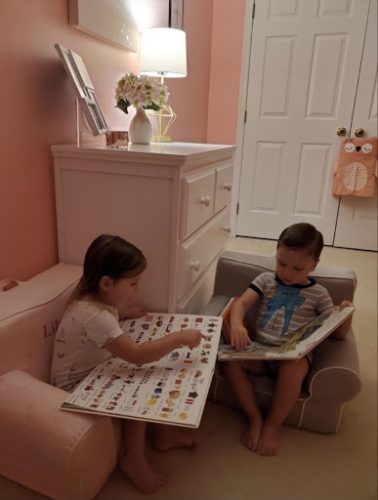Teachers Talk: Keeping Calm During Quarantine

We students know all about what Generation Z was up to in the months of strict quarantine, but what about our teachers?
No one had any idea that March 12 would be the last time we Neshannock students would be in the classroom for the 2019-2020 school year. Very similar stories were told across the United States. Weeks of lockdown brought on by the coronavirus pandemic followed…with no school. Across the country, kids scrambled to find ways to occupy their time, turning to whisking up whipped coffee or catching up on their favorite long TV series. The “family walk” became a daily ritual for some. It hasn’t let up in my house, but I don’t have any complaints, because the exercise is no small benefit.
Then Google Classroom as a mainstay came along, and it brought back structure to our days, but there was still ample free time on our hands. The missing element was lengthy classroom instruction. I certainly can’t speak for the entire student body, but I definitely mourned the absence of thorough, in-person lessons. I had taken them for granted on that fateful day of March 12, and every day before that.
The teachers, however, were perhaps the most grieved of all by this loss. Before online school opened up for the spring, they had to make the transition from imparting knowledge five days a week to being forced to stay home, which must have been strange indeed. Yes, they returned to work in the end, but definitely not in the same way, because now they sat behind a computer screen and not a classroom desk. Like us, their downtime had decreased, but there was still a bit of it left.
So what were they up to? What kept their minds intact during the lockdown?
That’s what I wanted to know.
I got into contact with a variety of Neshannock teachers—male and female, English and social studies, elementary and high school. My question for each of them was the same: What did you do to keep calm in the months of quarantine?
Miss Anita Slater, U.S. History teacher (at eighth grade, eleventh grade, and advanced placement levels), took to baking and running on new levels, because they had been in her recreational repertoire for a while. “Both allow me to relax and clear my head because I have to focus on the activity at hand,” she said. Baking is an exact practice, needing ingredients in just the right quantities or the recipe goes haywire, so this makes sense. She chose her baking projects based on the ingredients she had on hand, although early in quarantine, it was difficult to have everything.

Photo courtesy of Miss Anita Slater
As for running, she changed into her workout clothes immediately after work so that there were no excuses to not exercise. (This reminds me of my mom walking the dog.) In fact, she signed up for a virtual endurance challenge, where she had to get in 140 miles by a particular deadline, to really play into her competitive, goal-focused nature. The competition with herself and a group of strangers motivated her to keep exercising.
These two activities helped her manage the stress she accumulated over quarantine, because they were activities she enjoyed. She plans to participate in another virtual endurance challenge in the future. Baking and running also enabled her to focus on something that didn’t pertain to school or COVID, so they kept her sane in that sense and provided her with some normalcy in this strange world. Plus, as I know very well, when you are a voracious baker, you need some means to burn off the calories.
When Mrs. Ashley Seyler, sixth grade English and science teacher, wasn’t reading for pleasure, she took advantage of the time at home to work on learning activities with her young twins. The latter activity took up a good chunk of her time, but she didn’t mind. She enjoyed helping them learn their ABCs, counting, and sorting, because at two-and-a-half years old, they like learning new things.
She had a very good system in place, which added structure and schedule to everyone’s day. After going for a walk in the morning with the twins, it was time for “school”. And in the evenings, when the twins were in bed, she had time to read a book. Aside from simply getting lost in a really good book, she could also calm her brain down so she could sleep better.

Mrs. Ashley Seyler’s twins enjoy a good book or two. Photo courtesy of Mrs. Seyler
On if this experience taught her anything, she remarked, “I learned that I really missed sitting out down and enjoying a good book.” In the hustle and bustle of everyday life, it can be hard to make time to read, but the early months of quarantine offered ample time to do so. Also, she realized she thoroughly enjoyed teaching her kids, when she wouldn’t normally consider herself equipped to teach in a primary setting, and doing this helped with her sanity because it kept them busy.
Ms. Leslie Janaszek, eleventh and twelfth grade English teacher, didn’t get to read as much as she would have liked. She typically reads around twelve books a month, but during the months of strict quarantine, it was a struggle to get through one.
Once her kids returned to school (online school, that is), though, her days followed an orderly pattern. She woke up at seven in the morning and got her kids on their devices so that by nine, they would be all set, and she could concentrate on her school work. Between nine and twelve, she juggled working and keeping her kids from going at each other’s throats.
“As they are both still breathing, I’d say I was successful,” she quipped.
Lunch, walk, work, dinner, getting the kids to bed, more work. That was the schedule for the rest of the day. But throughout her email interview, she really impressed upon me the importance of spending time with her kids every day. From trying (but failing) to tend a garden to having hip hop dance parties in the kitchen, there was never a dull moment in her house, which I suppose contributed to a very crazy routine.
Mr. Blaise Paglia, high school Economics and U.S. History teacher, got involved in the kitchen during the lockdown. He learned how to make pasta from scratch. As someone with Italian roots on both sides who has heard stories of my grandparents and great-grandparents (although I have never done it myself!), I can really appreciate taking the time to learn this delicate art.
He did not have the time prior to quarantine to learn, so the time “stuck inside” provided him with ample opportunity to be the student for a change. It brought his family together once a week on Saturday or Sunday.
“I learned that I enjoy creating food, and teaching it to my kids was a fun thing too,” he said. It helped him pass the time, which is always a good way to keep the mind out of monotony.
These responses all opened my eyes to the personal lives of my teachers. Being more on the quiet side, I am not as familiar with them as people with lives outside of work as others might be. Therefore, I was pleasantly surprised to hear what they had to say.
I love baking and being in the kitchen, so I realize now that I am more like them than I had thought.
